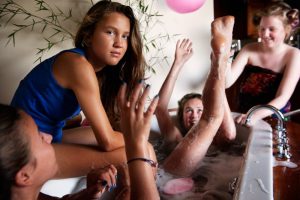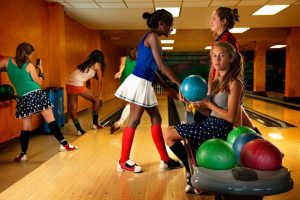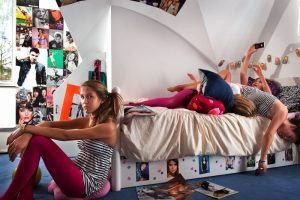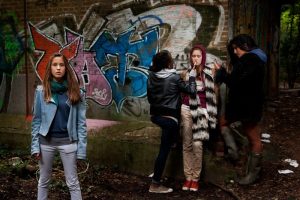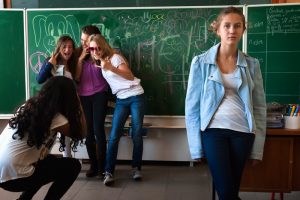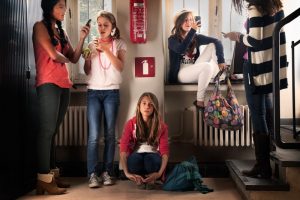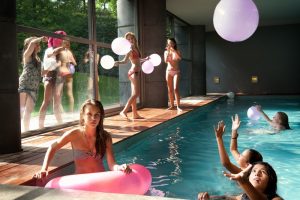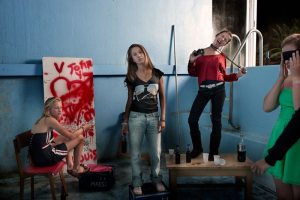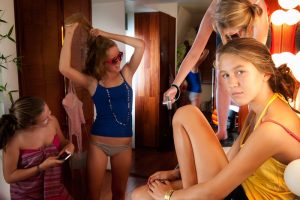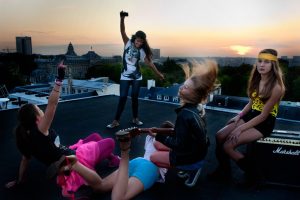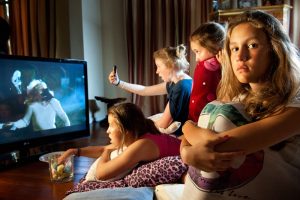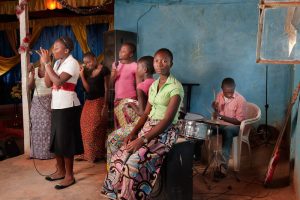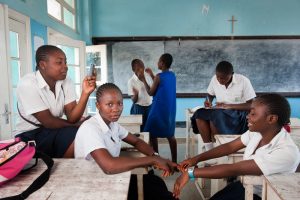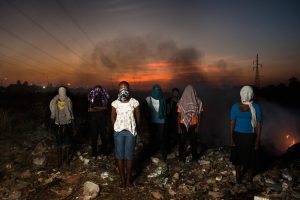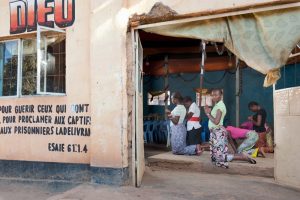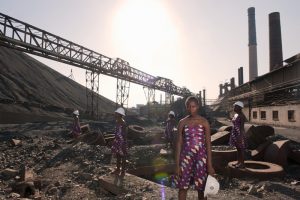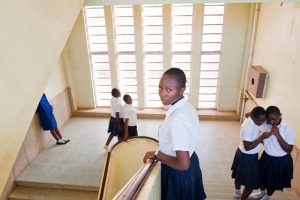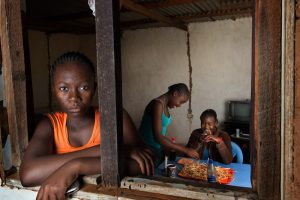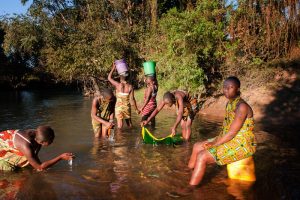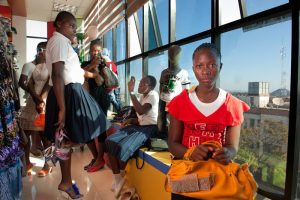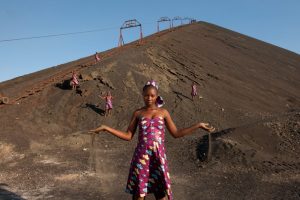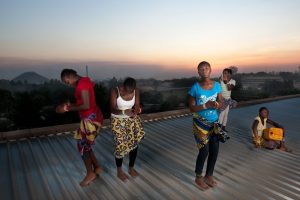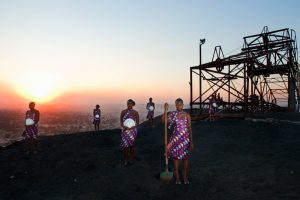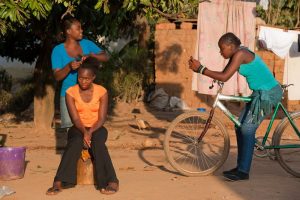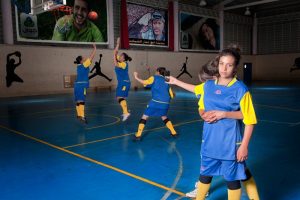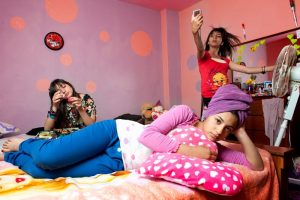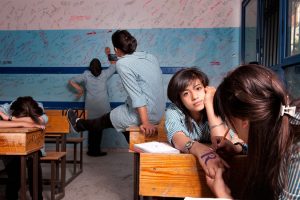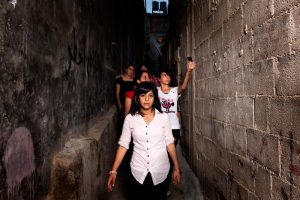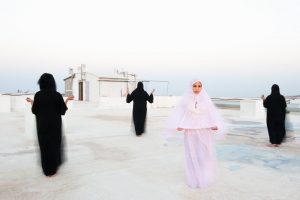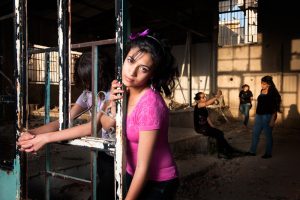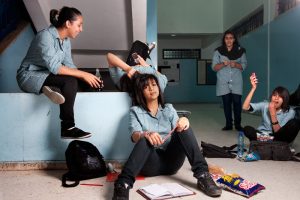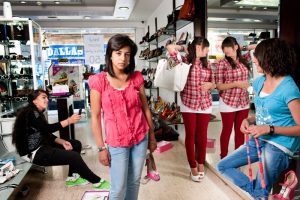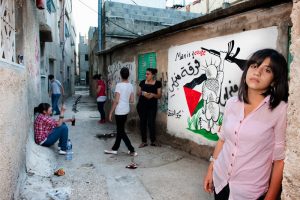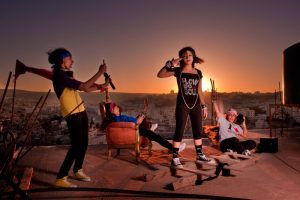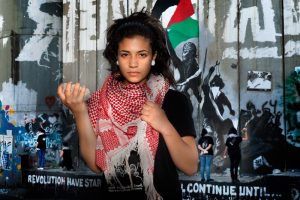I AM 14 – THE PHOTOGRAPHIC SERIES
“Adolescence, this beautiful, somewhat repulsive phase. What better way to gain access to it than with the help of a camera? Whether Palestinian, Congolese or Belgian, today it is before a lens (often their phone’s) that 14 year-old girls try on and discard, piling them up in small reject heaps, a series of identities just as they to do with clothes in front of the mirror of their wardrobe. They look at themselves and show themselves, they try themselves out and start again.
It is this kind of representation, now spreading widely on social networks, that photographer Bénédicte Vanderreydt beautifully captured with Valentine, who lives in Brussels; with Ru’a, who lives in the Dheisheh refugee camp in the West Bank; and with Loraine, who comes from Lubumbashi, in the Democratic Republic of Congo. Her film I am 14 is a succession of images characterized by slick aesthetics and saturated colours, as dreamlike as those by the American photographer Gregory Crewdson, which they evoke down to their hyper-controlled composition. They create a subtle play of mirrors: a group of girls take pictures on a roof, in a pool, in the middle of the school’s corridors, as they do every day, maybe even every minute. But the heroine looks at the photographer, and thus at the viewer, as if to say: “Look, this is my life.” She takes us to task, boldly showing that she is not fooled by a circus orchestrated by others, nor by the picture composed by the photographer; thus she regains power. Isn’t that what adolescence is all about, desperately wanting to belong to the group and yet stand out at the same time?
On the soundtrack that complements the images, we hear them talk one after the other. The one that says she lives “in an open-air prison” (Ru’a), the one who dreams of a “better life in Europe” (Loraine), the one who complains about people assuming she has “a perfect little life” while she is stifled by it (Valentine). It is not only confinement that unites them: of course their bedrooms are alike, just like the jaded attitude we discover at times. And especially their ease in front of the camera. The situations are certainly theatrical, the poses arranged, but a raw, undeniable truth still shines through.”
Elisabeth Franck-Dumas
Rédactrice en chef adjointe, Culture à Libération




